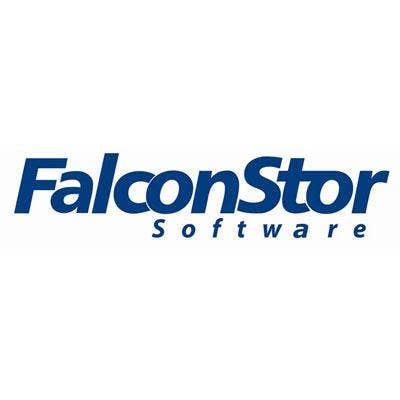CRN Exclusive: New FalconStor CEO Discusses Plans To Stabilize Financials, Grow The Business, And Get More Involved With The Channel

New Leader For FalconStor
FalconStor, once a darling of Wall Street and the channel, needs help. The company, a pioneer in storage virtualization, particularly in virtual tape library technology, was a hit with investors early this century with share prices that briefly reached over $14 per share but have more recently languished in the 20-cent to 25-cent range.
Todd Oseth, who on July 1 took over as president and CEO of the Melville, N.Y.-based storage software vendor, acknowledged in a far-reaching conversation with CRN that FalconStor is currently not cash-flow-positive, and may indeed require a cash infusion to grow despite recent cost-cutting measures including layoffs.
However, Oseth also believes strongly that FalconStor has a future based on its FreeStor software platform, which provides intelligent abstraction and predictive analytics on business data and helps customers take the right actions based on that information.
Here's what Oseth tells CRN about FalconStor and its plans going forward.

What did you do before joining FalconStor?
I was part of Intermap, which is a big data, geospatial company. Let's just say I went from being involved in the storage software business at EMC and McData to being a big user of terabytes and terabytes of storage. I started getting a little bit of the appreciation of being a customer.

Why the switch to FalconStor given that the company has faced several issues in the last few years?
There are a couple of reasons. One, all the products that FalconStor now has are similar to the products I was responsible for at EMC, where I was the vice president of infrastructure software. I had the virtualization, the high availability, visual SRM, replication. These are all very similar to what FalconStor offers. And while FalconStor is not having a current run, it's one of the few in the storage marketplace that have lasted almost 20 years. They've always been able to put things together because they do have some great technology. There may be some changes in go-to-markets every now and then for different products, but there are some good, solid individuals in the company.

If there are some 'good, solid individuals,' where's the problem at FalconStor? The fact that FalconStor has been around for 20 years is cool, but things are looking tough. What at FalconStor can make a future-looking business?
One of the best areas is that FreeStor itself is one heck of a platform. And I'll say the one thing that we will change is the way that we bring FreeStor to market. There's a number of customers [where] we will continue to help and continue to advance the product line. But we will focus more on what I refer to as 'use cases.' Some people call them vertical stacks. How can we specifically help in a world of data migration to and from the cloud? Because FreeStor was based on the fundamentals of virtualization, we treat all storage resources equally, whether it's a cloud resource or whether it's on an array in another room. What made FalconStor famous over the years is that it was always able to deal with everybody's arrays, not just one type of array.

So you are talking an emphasis on the cloud?
As a percentage of companies that are using the cloud today, it's still small. … That will continue to increase over the next five to 10 years. And we expect to be there to help them in making it easier to move back and forth to the cloud, whether it be for backup, whether it be for replication, whether it be for VTL [virtual tape libraries] in the cloud. All of the above.
FalconStor has been a leader in VTL from the beginning, and we have no reason to slow down in that space.

But practically every major storage vendor and startup offers some flavor of storage virtualization. And a lot of that is aimed a working across multiple vendors' storage. So what is unique about FalconStor?
There's no one as good as we are in virtual tape library space. And when you combine that with the cloud, you have a heck of a a solution there. Everyone else wants to take on the entire environment. If we focus more on specific use cases, so that we don’t have to change an entire environment to use [our technology, I think we'll see better penetration into the marketplace. So it's an ease-of-use thing.

OK, but there's a reason why almost nobody else is doing VTLs. With new types of cloud-based data protection and archiving, isn't it true that businesses have moved beyond tape formats?
The answer is, yes, a large part of the market has. But I've been told the VTL has been gone now for 15 years. And it's still out there. And it's still strong. It's one of those technologies that's just not going away.

How is FalconStor tying VTL technology to the cloud?
You're already able to purchase our FreeStor VTL capability right from Amazon, and start to use it right now. [FreeStor sets] up a target, and then you'll be able to transfer data back and forth, emulating different tape modes. You're dealing with somebody that has been at the center of the market for 15 or 20 years. And I sure feel safer with that when it comes to archiving data.

OK, but one could also argue that FalconStor has been a victim of its own success by making it possible to emulate tape libraries virtually, and essentially helping to kill the tape library market. Doesn't that signal the end of FalconStor's value?
No. What ends up happening is that a lot of people are not fully utilizing the cloud yet. So it becomes our introduction, and we become the conduit, for those companies that have still been a little bit slow in their usage of the cloud, but have found some success with some of their older technologies moving to the cloud first. And we have the pole position because we're already there. And our technology does support all of the other services that they would be looking for.
If that's the case, then what's going on with FalconStor financially? Share prices several years ago were up in the $14 range, but are now in the 25-cent range. Can FalconStor survive as an independent company?
I believe it can. I wouldn't have joined if I didn't believe it could. We're going to have to be looking at ways to solidify the balance sheet. It is where it is right now. But there are ways to fix that. There are very few other companies that can say they've been around for 20 years. We've weathered an awful lot of ups and downs. We are unfortunately in a down right now, but we'll overcome it. And we'll continue to be in the marketplace and serve our customers for the next 20 years.

You are facing an immediate hurdle. FalconStor is in the process of being delisted from the Nasdaq.
That's correct. … We're also in the process of working with the Nasdaq in order to get an extension on that so that we can better ourselves and still be on the main Nasdaq exchange.

Is FalconStor a cash-flow-positive company?
Not at this time.
Do you expect to need a cash infusion?
There will most likely be a cash infusion required. FalconStor has also been in the process of reducing its overall operating costs over the last three months.
Does that include reductions in force?
It has, yes. … It's tough. But you know what happens. I'm going to say the only downfall of being around a long time is that sometimes you get a little bloat and you end up with a few too many people. And FalconStor is no different from much of the rest of the marketplace.

Can you see FalconStor being acquired?
The nice thing for me is that I get to focus on trying to get the financial performance of the company up, and then you at least have an opportunity to be acquired. As long as the financial performance is lackluster, who wants to buy a boat anchor?
Although it could be a cheap boat anchor …
It could be. But [we've] got some technologies that are second-to-none in our space, including our virtualization technology. There are ways that it could be used. But for me, the best thing is to just make the company as healthy as it can possibly be. Make our customers as happy as they can be with the company. And then we continue to go out and get new customers with our use case approach.

How much does FalconStor depend on channel partners?
It sells direct, and fulfills through the channel. Most of the support, if not all, 97 percent of the support, comes directly from FalconStor, if there are issues.
But 100 percent of the fulfillment is through the channel?
One hundred percent is a little tough, but it's at least in the 90s.

So what are some of the initial initiatives we can expect as you take over the reigns at FalconStor in terms of product, technology and finances?
On the product side, the priority is to identify the first three use cases that we're going to bring to market, and then get them into the market. On the financial side, it will be a way to shore up the balance sheet so that it's not as blatant as it currently is today. From a sales standpoint, I actually believe that we're going to get more involved with the channel because the strategy of our uses cases … should be easier to be adopted by the channel. Then I'll be spending a lot of time with customers and channel partners and seeing what exactly they're thinking about FalconStor and what we can do to help them increase the value in their environments.

Former FalconStor CEO Gary Quinn [pictured] left. What are his plans now?
I am not sure. I do not know. … He's available to help in the transition. It's always nice to have a little bit of a runway instead of just being thrown in. It's another reason why I made the jump to FalconStor. [Others include] one, there are good technologies there. Two, there's a lot of good customers that FalconStor has that we can continue to service and build upon. And three, I'm familiar with the marketplace because of past position.
One thing we have to ask of a new CEO: Are you related to any investment companies?
Not that I'm aware of. I'm always looking to get adopted.